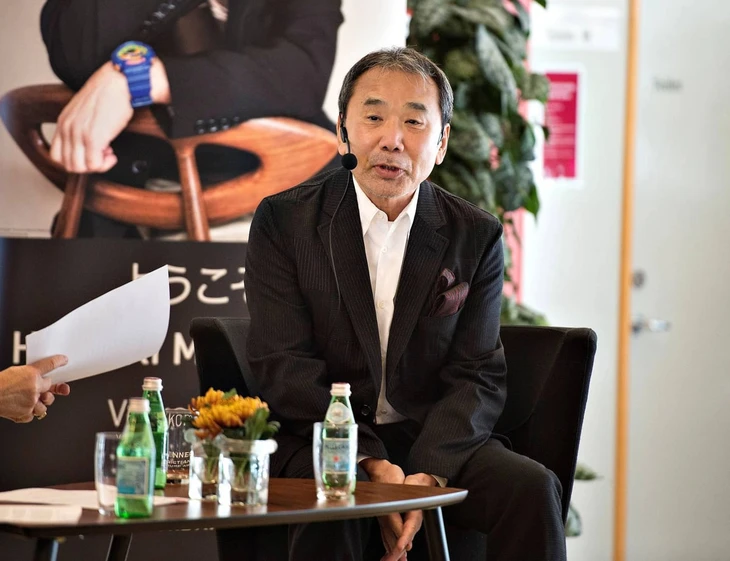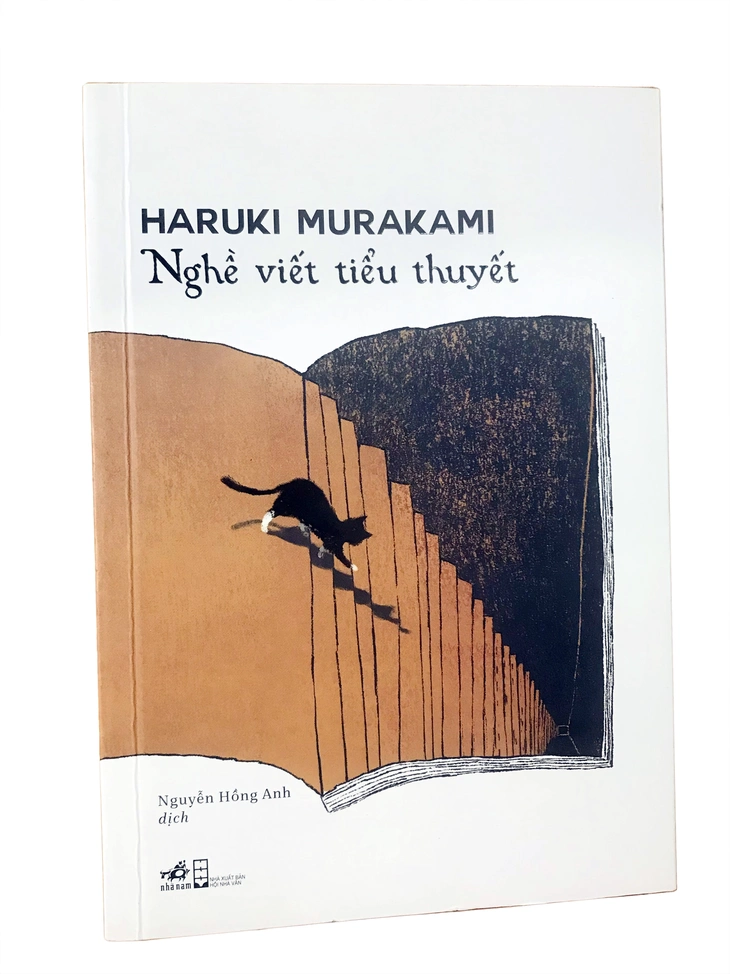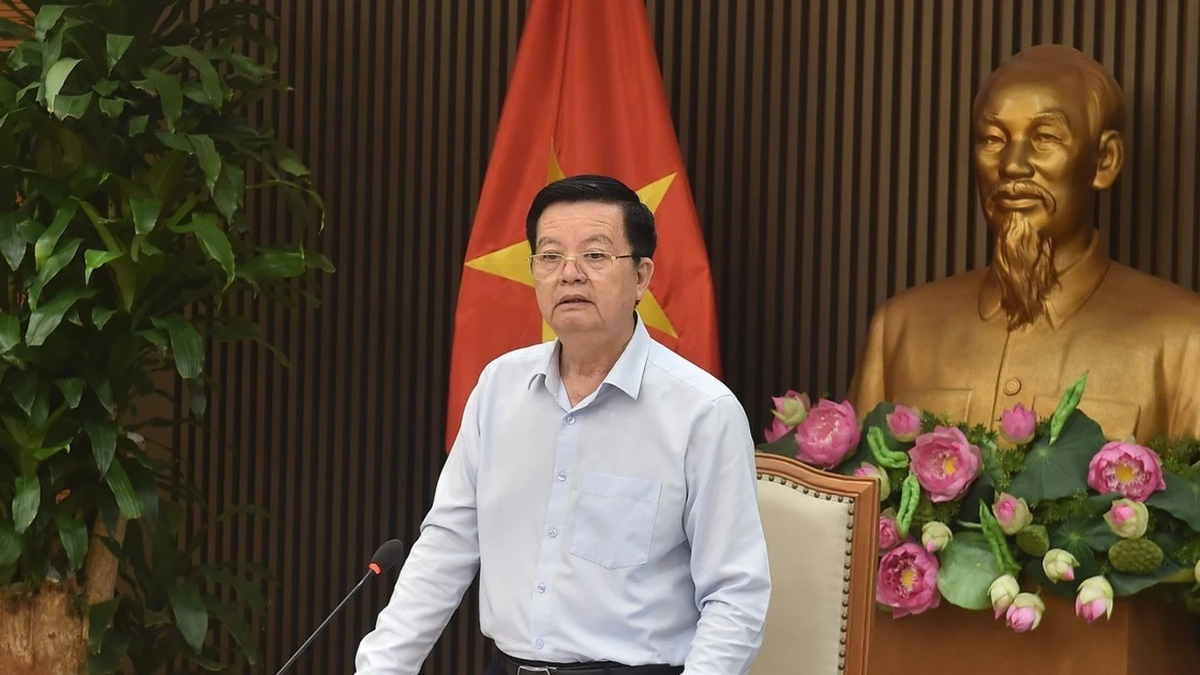
"Only when I write can I think sequentially" - excerpt from the book - Photo: Reuters
"If I had said from the beginning that I would be talking about novels, the scope of the story would have been too broad, so for now I will first talk about the craft of writing novels. I think it would be more specific and easier to visualize, and the story would be easier to develop." Murakami Haruki began his book The Craft of Writing Novels like this.
Born in baseball
The book Novel Writing collects several articles published in a magazine founded by Murakami's friend, plus his public speech at the Kawai Hayao Prize event, named after Murakami's late friend.
Completed in 2015, this is a compilation of Murakami's personal experiences in writing novels, summarizing three decades of pursuing writing.
Born into a family where both parents were teachers, Murakami confessed that he had no passion for studying. He only truly devoted himself to literature at the age of 30.
While watching a baseball game at the stadium, the inspiration to write a novel suddenly came to him. At that time, Murakami was running a bar and could only write after work. That was how his first novel, Hear the Wind Sing, was born.
Hear the Wind Sing won a literary award for new authors. From one novel to another, Murakami Haruki gradually affirmed his name and position in the fan community.
At first glance, this Japanese writer's literary career seems quite smooth, but in reality, according to Murakami, things were not easy at all.
His works were not always appreciated by the experts. In fact, the literary environment at that time was so stifling that he had to leave the country to live for a while.
Many of his famous novels were written during his stay abroad, including his most famous works.
For more than 10 years now, every Nobel Prize season, Murakami Haruki's name has been mentioned as a candidate for the Nobel Prize in Literature, and perhaps this has caused him a lot of trouble. But Murakami has many years of experience dealing with... missing out on the prize.
He devoted a whole chapter to literary awards for writers.
In Japan, there is a prestigious literary award called the Akutagawa Prize, established in 1935, named after the writer Akutagawa Ryunosuke (1892-1927). Many famous Japanese writers have received this award, including Oe Kenzaburo (Nobel Prize for Literature in 1994). Oe's novel Shiiku was awarded the Akutagawa Prize in 1958.
Murakami frankly admitted that for him personally, the award has no impact on his creative work.
But for a long time, the fact that Murakami was not awarded the Akutagawa Prize became a topic of discussion. One day, when Murakami went to a bookstore, he saw a book on the shelf called Why Haruki Murakami Didn't Win the Akutagawa Prize.
Murakami quotes Raymond Chandler, a writer he admires, many of whose works he has translated into Japanese: "What the hell is the Nobel Prize for Literature? It's given to so many second-rate writers.
Writers who don't inspire any interest in reading. Most of them, if they win, have to go to Stockholm, dress up and give a speech. Is the Nobel Prize in Literature worth all that effort? Of course not."
Out of the myth of natural talent

Murakami's Novel Writing Book
The Craft of Novel Writing is not so much a literary manual on how to write as a work about the craft. Although Murakami discusses many of the basics of writing a novel.
Maybe with a first work, writing as an improvisation, writing to satisfy something, talent and inspiration play an important role.
But making a living from writing novels as a career requires many other factors. Especially when starting to write long novels, it requires time and physical strength of the writer.
Murakami dispels the myth that a writer must be an extraordinary person or at least have an extraordinary life.
On the contrary, they are ordinary people, even with boring, repetitive, disciplined lives. He took Kafka as an example - the great writer of humanity. During his lifetime, Kafka was still a diligent employee every day. His writing work did not distract or overwhelm his office personality.
Before The Novelist was published, Murakami's most famous nonfiction work was What I Talk About When I Talk About Running. He is a professional runner, a habit he has maintained since he entered his 30s. In his 70s, Murakami still runs dozens of kilometers every day.
His good physical condition and disciplined spirit help him to still write works of quite large capacity. Murakami's latest novel, The City and the Uncertain Walls (tentative title), with nearly 700 pages, was released in Japan in 2023.
Source: https://tuoitre.vn/murakami-giu-niem-kinh-ngac-mai-mai-thuan-khiet-20250723084141374.htm
























![[Photo] National Assembly Chairman attends the seminar "Building and operating an international financial center and recommendations for Vietnam"](https://vphoto.vietnam.vn/thumb/1200x675/vietnam/resource/IMAGE/2025/7/28/76393436936e457db31ec84433289f72)











































































Comment (0)